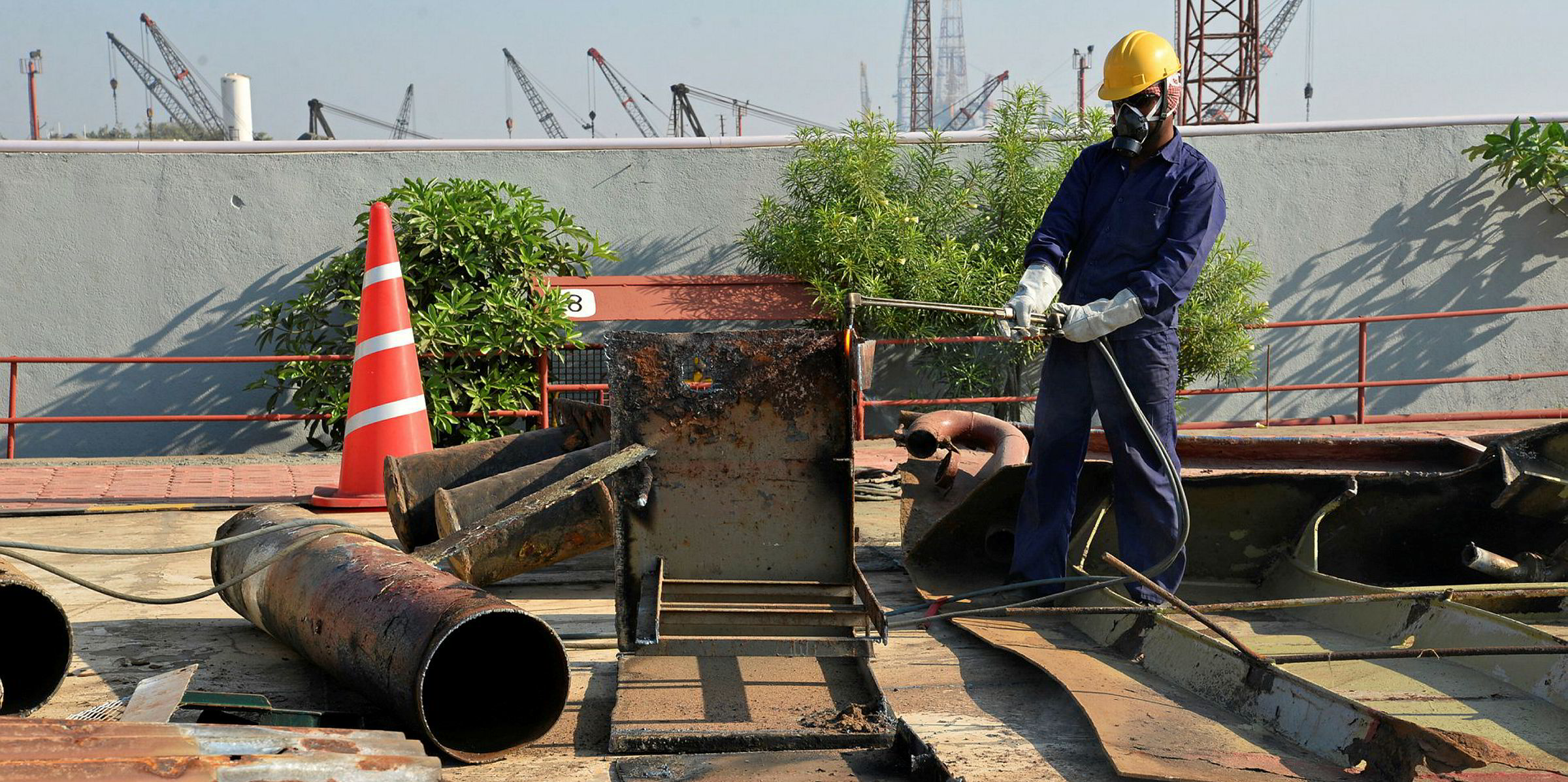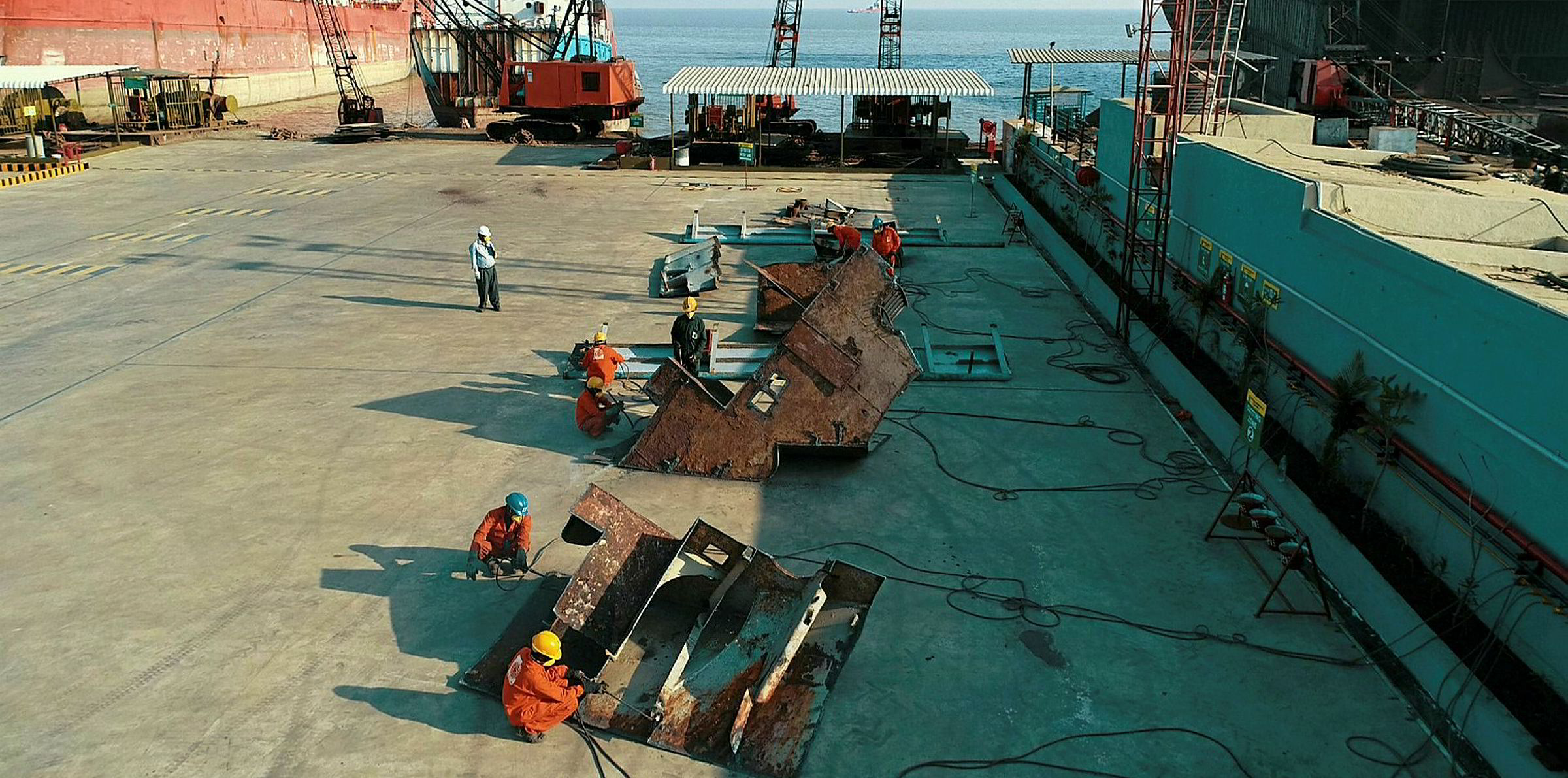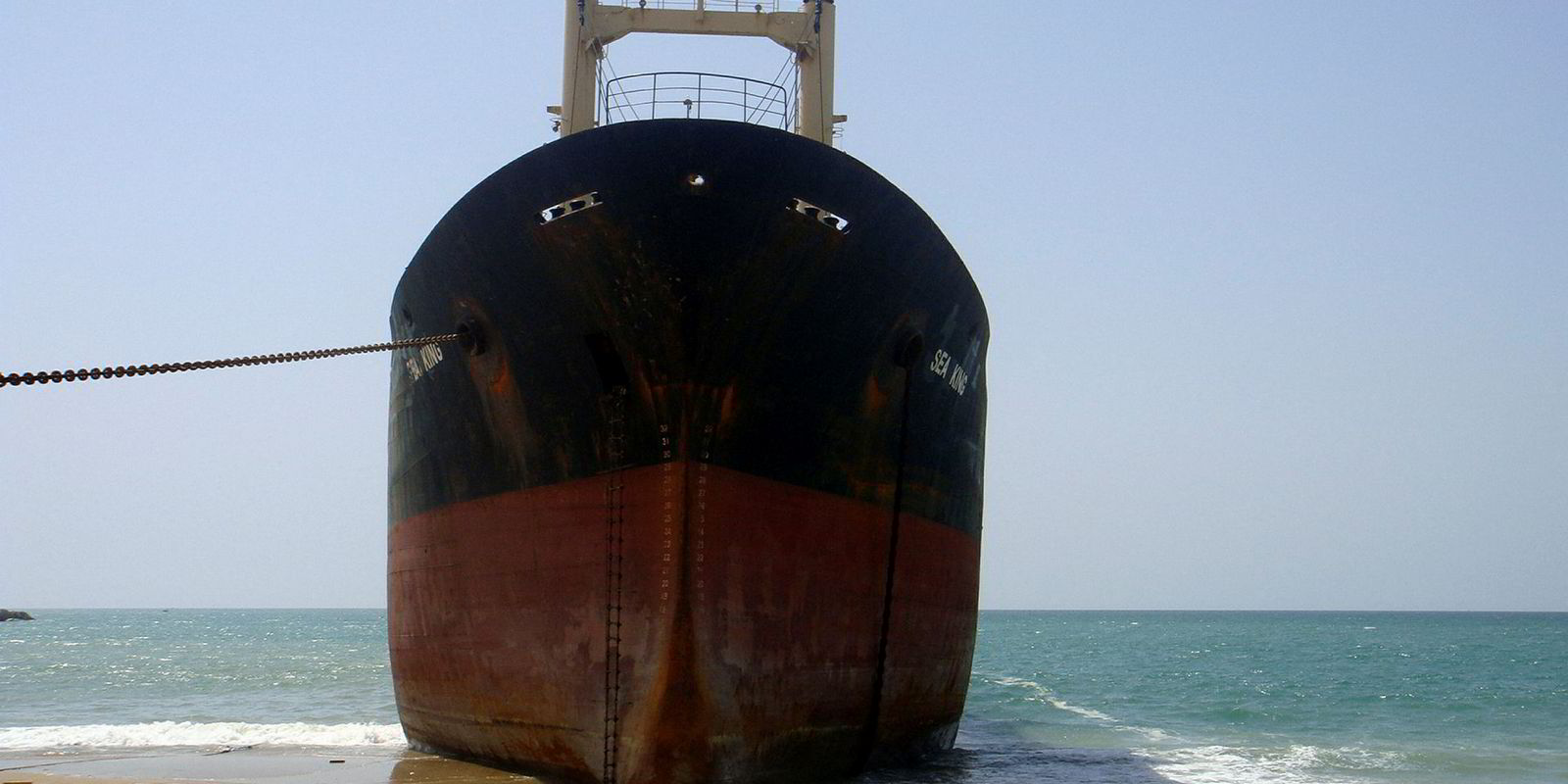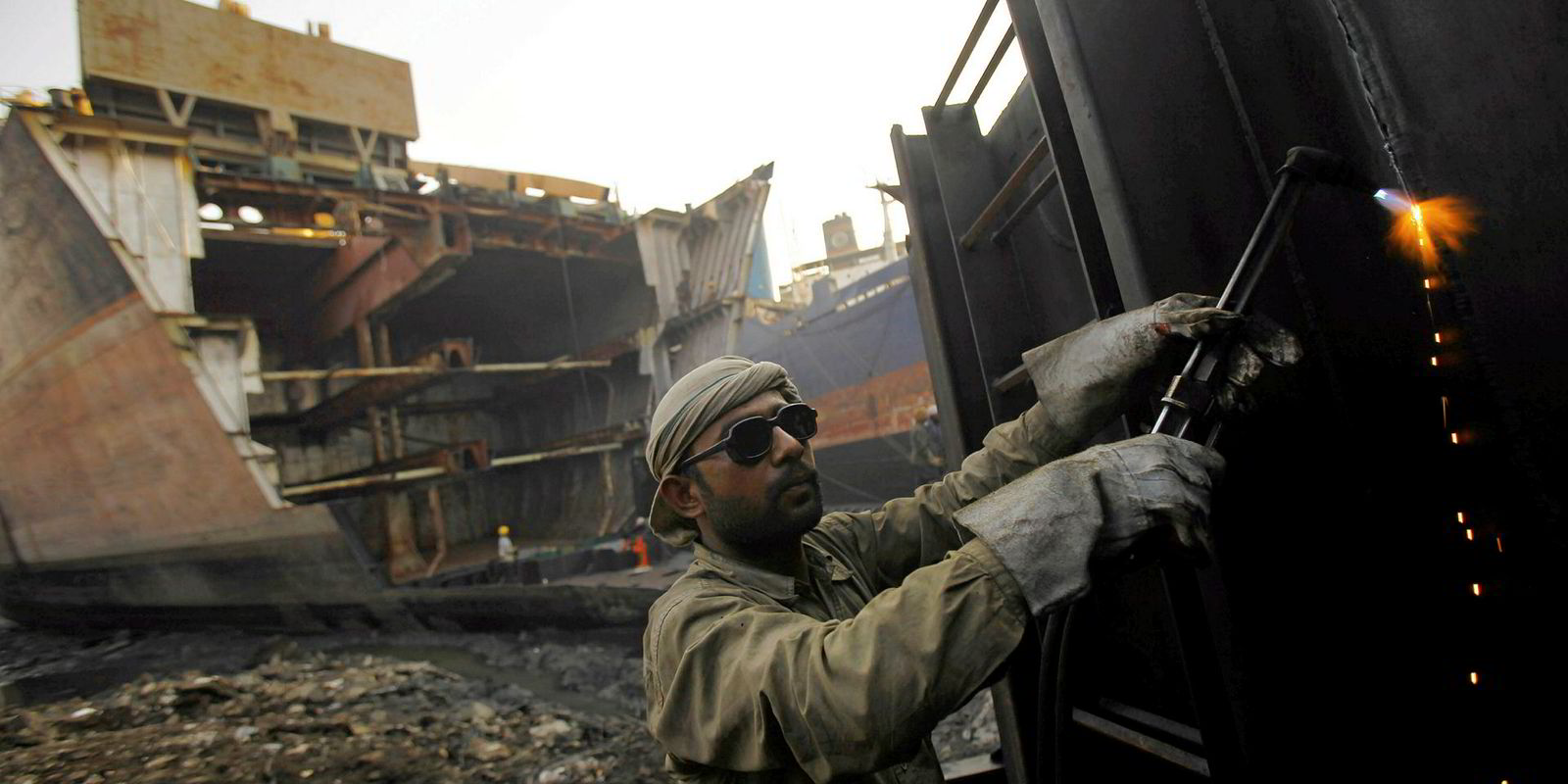The environmental impact of the shipbreaking industry is often misunderstood. Yet that is also why shiprecycling has been so exciting, according to GMS chief executive Anil Sharma.
Having established one of the world’s largest cash buyers of scrap vessels over the past 26 years, Sharma has lately been promoting the Indian subcontinent’s green recycling.
The region makes up the bulk of world’s shipbreaking capacity, and is where Dubai-headquartered GMS often completes its business. However, Indian, Pakistani and Bangladeshi shipbreakers are often criticised for their beaching methods.
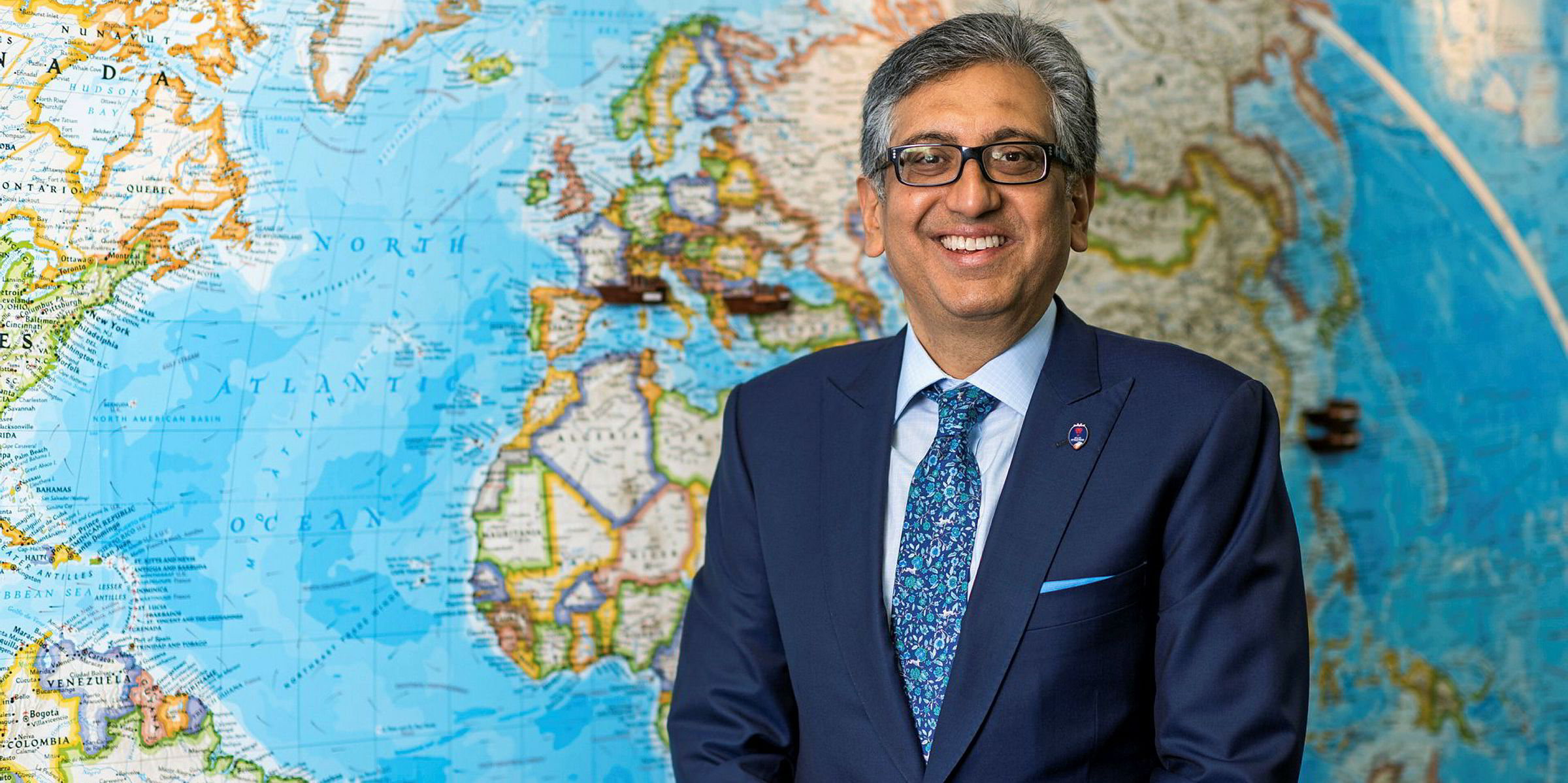
Mitigating impact
By following the IMO’s Hong Kong International Convention for the Safe and Environmentally Sound Recycling of Ships, shipbreakers can actually mitigate the environmental impact of beaching, Sharma said. For example, using concrete floors prevents pollutants from entering the subsoil.
Moreover, recycling vessels in the subcontinent can achieve a lower aggregate carbon footprint, as there is a thorough recycling industry supply chain, he added.
The industry is so green [in the Indian subcontinent], and yet it has been elaborated as opposite
Anil Sharma
“The industry is so green [there], and yet it has been elaborated as opposite,” Sharma said.
For example, there will be collectors picking up nearly everything onboard, such as wire and furniture, before the cutting process starts.
“Can you do this in the Western market? No, they are going to think about dumping [those] into some [landfill] sites.”
Steel recycled locally
On the Indian subcontinent, scrap steel will be sent to local re-rolling mills and converted into rods and bars, which can be used as construction materials.
“When you recycle a ship in Europe and America, the steel is exported as scrap,” Sharma said.
Environmental concerns have resulted in more rules, locally and sometimes regionally, such as the European Union's Ship Recycling Regulation.
“The industry [has] got so many more issues than any other parts of the maritime world … there is more excitement,” Sharma said.
Other businesses
Having grown to handle about 200 scrap ships a year from its eight offices worldwide, GMS has also developed various side businesses.
It owns and operates five modern kamsarmax, ultramax and handysize bulkers and one 1998-built feeder boxship. GMS Capital funds secondhand deals of $3m to $20m via debt and equity.
“[But] I enjoy scrapping more than being a shipowner,” Sharma said.
